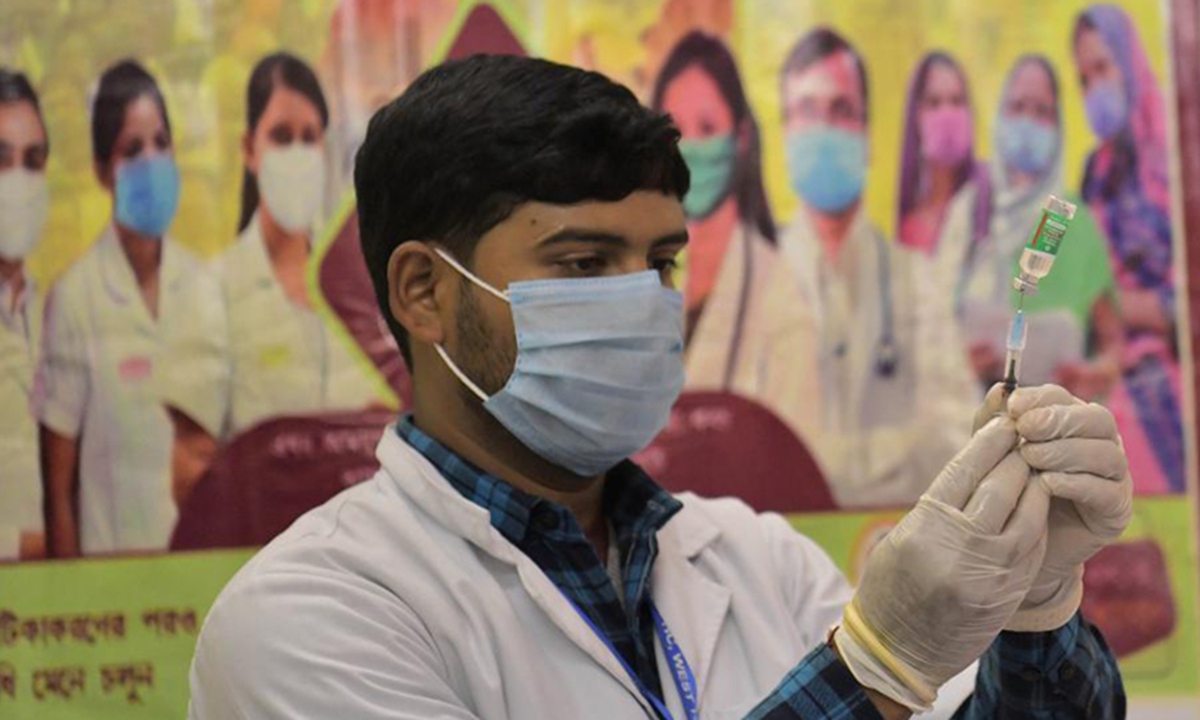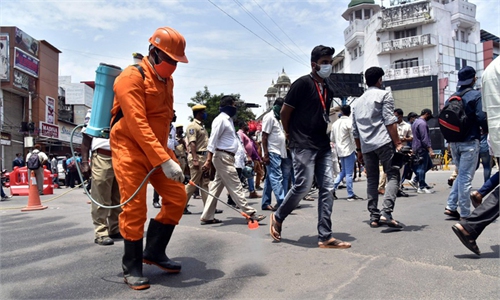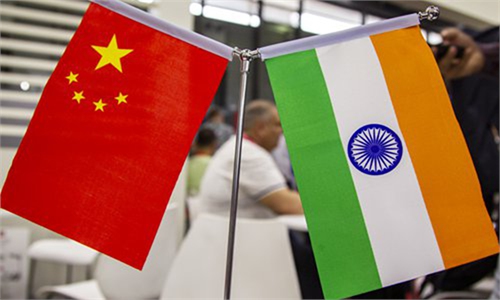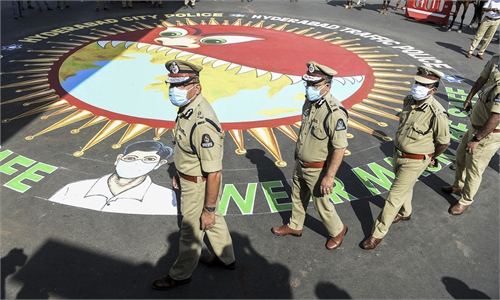
A health worker prepares a dose of the COVID-19 vaccine Covishield for health workers of the Border Security Force at Agartala, the capital city of India's northeastern state of Tripura. Photo: Xinhua
Indian Prime Minister Narendra Modi announced on Monday a plan to provide free COVID-19 vaccines to all adults above the age of 18 as the federal government takes over the inoculation program from the state governments starting from June 21, according to media reports.After weeks of criticism over the vaccine inoculation rollout, the seismic change to the country's vaccination policy is a commendable development, an encouraging demonstration of India's resolve to rein in the latest coronavirus outbreak that has led to widespread devastation across the country.
If the new vaccination plan is implemented effectively, then it is expected to be of great help in flattening the infection curve in the South Asian nation in the coming future, also giving a major boost to lift India's economic expectations after an extended period of gloom.
After a second wave of outbreak has caused COVID-19 related illness and mortality to skyrocket, observers and economists have expressed concerns that the Indian economy may need years to recover from this latest pandemic hit, while various international financial institutions lowered their forecasts for the economy. With the significant fall in economic activity, industrial production and consumption, in short, India's economy has never faced so much uncertainty as it does today.
At present, it is still hard to tell how long the impact of the epidemic will last in India, which has posed a severe test to the confidence of many international investors when it comes to being positive about the future of the Indian economy.
To a certain extent, the federal government's major change to the vaccination policy may be the most efficient solution to its current difficulties. Only effective containment of the current wave and future waves of outbreaks can the entire Indian society return to normalcy and can investors restore confidence.
Previously, India, with its huge potential market, has attracted a large volume of international capital inflows, which has also been hit this time by the epidemic and may set off a chain reaction among Asian economies.
As such, if India can shrug off the epidemic impact as quickly as possible, it will be much welcomed good news for global investors that the entire Asian industrial chain and regional economy may be able to breathe a sigh of relief.
Of course, whether the free vaccination program will succeed for its purposes will hinges on effective implementation, which may still face challenges such as whether the vaccine supplies could keep up with the needs, and whether India's already burdened finance can handle such huge expenditures on procuring vaccines. A flaw at any point of the process can derail the efforts with high hopes.
In this sense, the Modi government needs to do its utmost to ensure the smooth rollout of the nationwide vaccine program and ask for assistance from other countries in the process if it encounters any difficulties. With the situation being so dire, any outside help may make a world of difference.



